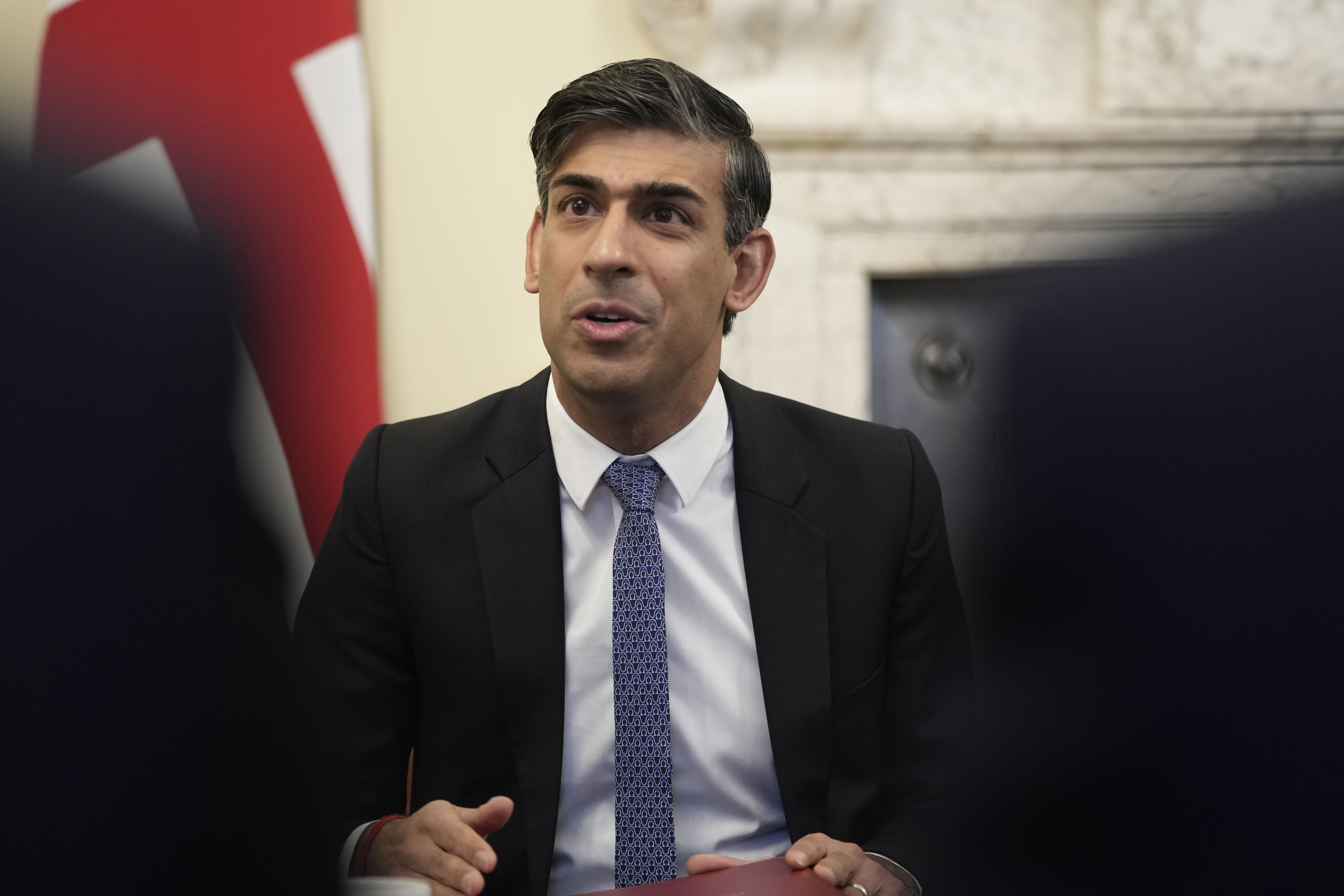PM declares inflation pledge delivered as rate falls to lowest in two years
Office for National Statistics data shows Consumer Prices Index inflation was 4.6% in October, down from 6.7% in September.

Your support helps us to tell the story
From reproductive rights to climate change to Big Tech, The Independent is on the ground when the story is developing. Whether it's investigating the financials of Elon Musk's pro-Trump PAC or producing our latest documentary, 'The A Word', which shines a light on the American women fighting for reproductive rights, we know how important it is to parse out the facts from the messaging.
At such a critical moment in US history, we need reporters on the ground. Your donation allows us to keep sending journalists to speak to both sides of the story.
The Independent is trusted by Americans across the entire political spectrum. And unlike many other quality news outlets, we choose not to lock Americans out of our reporting and analysis with paywalls. We believe quality journalism should be available to everyone, paid for by those who can afford it.
Your support makes all the difference.The Prime Minister has declared the Government has delivered on its pledge to halve inflation, as price rises slowed to the lowest rate in two years last month after energy costs fell back.
Consumer Prices Index (CPI) inflation was 4.6% in October, down from 6.7% in September, according to data from the Office for National Statistics (ONS).
Rishi Sunak said it means he has met his target of halving inflation to below 5.4% by the end of the year.
But inflation remains above the Bank of England’s 2% target, and economists pointed out that the lower energy price cap helped drive the sharp drop last month.
Last year, soaring energy costs saw industry regulator Ofgem set the price cap at £2,500 for the typical household.
This year, bills have been capped at £1,834 for the typical household as prices have fallen back.
ONS chief economist Grant Fitzner said: “Inflation fell substantially on the month as last year’s steep rise in energy costs has been followed by a small reduction in the energy price cap this year.”
Mr Sunak said: “In January I made halving inflation this year my top priority. I did that because it is, without a doubt, the best way to ease the cost of living and give families financial security.
“Today, we have delivered on that pledge.”
He added “hard decisions and fiscal discipline” by his Government had contributed to the fall in inflation, but stressed it must “stay on course to continue to get inflation all the way back down to 2%”.
Suren Thiru, economics director at the Institute of Chartered Accountants in England and Wales, said the “dramatic drop suggests that the UK has turned the corner in its battle against soaring inflation”.
But he added: “While the Prime Minister has achieved his target to halve inflation this year, this owes more to the downward pressure on prices from falling energy costs and rising interest rates than any Government action.”
Shadow chancellor Rachel Reeves said the Government should not be “popping champagne corks” about the drop in inflation, with people still struggling with the cost of living.
There are no guarantees that inflation will fall in a straight line from here
“After 13 years of economic failure under the Conservatives, working people are worse off with higher mortgage bills, prices still rising in the shops and inflation twice as high as the Bank of England’s target,” she said.
Food and non-alcoholic drink inflation remained just above double digits at 10.1% last month, as prices remain substantially higher than a year ago.
But it was the lowest rate since June last year, providing some relief to households who have been squeezed by the higher cost of living.
Falling house prices helped pull down CPI last month, with the rate of housing inflation the lowest since records began in 1950.
Mr Sunak announced his promise to halve inflation by the end of the year in early January.
He did not clarify which reading it is measuring the target against, but it is understood to be based against the CPI reading for November 2022, which was 10.7%.
It means a figure of about 5.4% or lower indicates he has met his pledge.
However, Sarah Coles, head of personal finance at Hargreaves Lansdown, pointed out it will not be “downhill all the way from here” despite October’s sharp fall in CPI.
“There are no guarantees that inflation will fall in a straight line from here,” she said.
“There’s even a chance we will have rises along the way – especially if we get a surge in energy or petrol prices.”
In its report earlier this month, the Bank of England’s Monetary Policy Committee (MPC) said it thinks inflation will stay higher for longer, not returning to its 2% target until the end of 2025.
Samuel Tombs, an economist at Pantheon Macroeconomics, said October’s data should “entrench expectations” the MPC will be able to start lowering UK interest rates, which currently stand at 5.25%, in about six months’ time.
The pound dropped by about 0.3% against the US dollar on Wednesday morning amid expectations that rates could begin to come down next year.
The latest ONS data also showed the CPI measure of inflation including housing costs (CPIH) was 4.7% last month, down from 6.3% in September.
The Retail Prices Index (RPI) meanwhile slowed to 6.1% from 8.9% in the previous month.